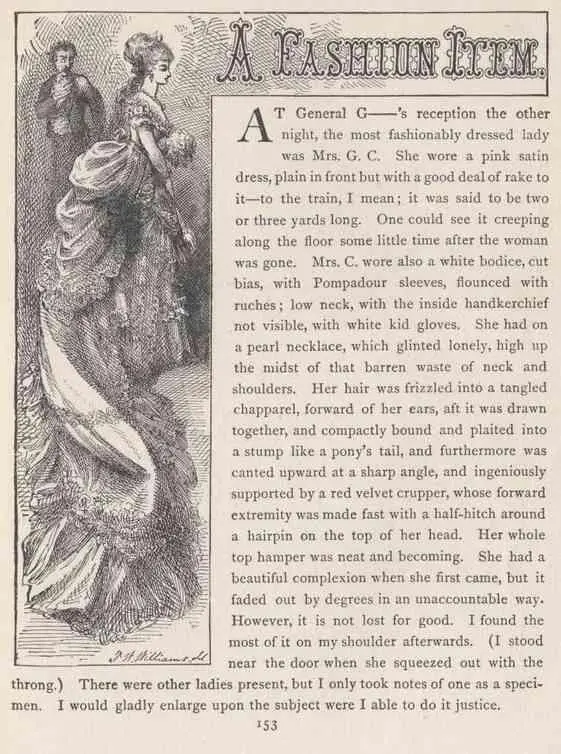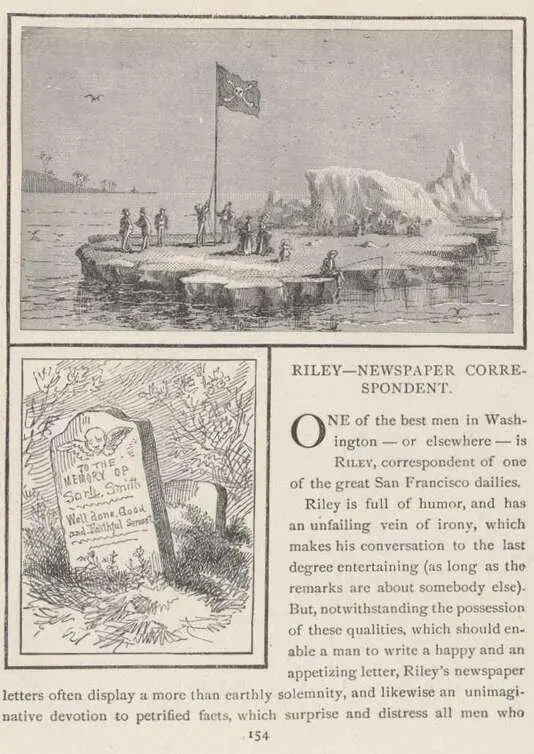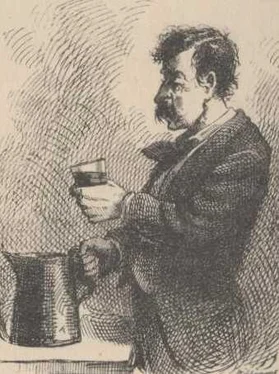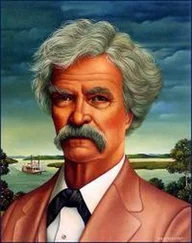Mark Twain - Sketches New and Old
Здесь есть возможность читать онлайн «Mark Twain - Sketches New and Old» весь текст электронной книги совершенно бесплатно (целиком полную версию без сокращений). В некоторых случаях можно слушать аудио, скачать через торрент в формате fb2 и присутствует краткое содержание. Год выпуска: 2004, Жанр: Классическая проза, Юмористическая проза, на английском языке. Описание произведения, (предисловие) а так же отзывы посетителей доступны на портале библиотеки ЛибКат.
- Название:Sketches New and Old
- Автор:
- Жанр:
- Год:2004
- ISBN:нет данных
- Рейтинг книги:5 / 5. Голосов: 1
-
Избранное:Добавить в избранное
- Отзывы:
-
Ваша оценка:
- 100
- 1
- 2
- 3
- 4
- 5
Sketches New and Old: краткое содержание, описание и аннотация
Предлагаем к чтению аннотацию, описание, краткое содержание или предисловие (зависит от того, что написал сам автор книги «Sketches New and Old»). Если вы не нашли необходимую информацию о книге — напишите в комментариях, мы постараемся отыскать её.
Sketches New and Old — читать онлайн бесплатно полную книгу (весь текст) целиком
Ниже представлен текст книги, разбитый по страницам. Система сохранения места последней прочитанной страницы, позволяет с удобством читать онлайн бесплатно книгу «Sketches New and Old», без необходимости каждый раз заново искать на чём Вы остановились. Поставьте закладку, и сможете в любой момент перейти на страницу, на которой закончили чтение.
Интервал:
Закладка:
"'Very truly, etc.,
"'MARK TWAIN,
"'For James W. N——-, U. S. Senator.'
"There—now what do you think of that?"
"Well, I don't know, sir. It—well, it appears to me—to be dubious enough."
"Du—leave the house! I am a ruined man. Those Humboldt savages never will forgive me for tangling their brains up with this inhuman letter. I have lost the respect of the Methodist Church, the board of aldermen—"
"Well, I haven't anything to say about that, because I may have missed it a little in their cases, but I was too many for the Baldwin's Ranch people, General!"
"Leave the house! Leave it forever and forever, too."
I regarded that as a sort of covert intimation that my service could be dispensed with, and so I resigned. I never will be a private secretary to a senator again. You can't please that kind of people. They don't know anything. They can't appreciate a party's efforts.
A FASHION ITEM

At General G——'s reception the other night, the most fashionably dressed lady was Mrs. G. C. She wore a pink satin dress, plain in front but with a good deal of rake to it—to the train, I mean; it was said to be two or three yards long. One could see it creeping along the floor some little time after the woman was gone. Mrs. C. wore also a white bodice, cut bias, with Pompadour sleeves, flounced with ruches; low neck, with the inside handkerchief not visible, with white kid gloves. She had on a pearl necklace, which glinted lonely, high up the midst of that barren waste of neck and shoulders. Her hair was frizzled into a tangled chaparral, forward of her ears, aft it was drawn together, and compactly bound and plaited into a stump like a pony's tail, and furthermore was canted upward at a sharp angle, and ingeniously supported by a red velvet crupper, whose forward extremity was made fast with a half-hitch around a hairpin on the top of her head. Her whole top hamper was neat and becoming. She had a beautiful complexion when she first came, but it faded out by degrees in an unaccountable way. However, it is not lost for good. I found the most of it on my shoulder afterward. (I stood near the door when she squeezed out with the throng.) There were other ladies present, but I only took notes of one as a specimen. I would gladly enlarge upon the subject were I able to do it justice.
RILEY—NEWSPAPER CORRESPONDENT

One of the best men in Washington—or elsewhere—is RILEY, correspondent of one of the great San Francisco dailies.
Riley is full of humor, and has an unfailing vein of irony, which makes his conversation to the last degree entertaining (as long as the remarks are about somebody else). But notwithstanding the possession of these qualities, which should enable a man to write a happy and an appetizing letter, Riley's newspaper letters often display a more than earthly solemnity, and likewise an unimaginative devotion to petrified facts, which surprise and distress all men who know him in his unofficial character. He explains this curious thing by saying that his employers sent him to Washington to write facts, not fancy, and that several times he has come near losing his situation by inserting humorous remarks which, not being looked for at headquarters, and consequently not understood, were thought to be dark and bloody speeches intended to convey signals and warnings to murderous secret societies, or something of that kind, and so were scratched out with a shiver and a prayer and cast into the stove. Riley says that sometimes he is so afflicted with a yearning to write a sparkling and absorbingly readable letter that he simply cannot resist it, and so he goes to his den and revels in the delight of untrammeled scribbling; and then, with suffering such as only a mother can know, he destroys the pretty children of his fancy and reduces his letter to the required dismal accuracy. Having seen Riley do this very thing more than once, I know whereof I speak. Often I have laughed with him over a happy passage, and grieved to see him plow his pen through it. He would say, "I had to write that or die; and I've got to scratch it out or starve. They wouldn't stand it, you know."
I think Riley is about the most entertaining company I ever saw. We lodged together in many places in Washington during the winter of '67-8, moving comfortably from place to place, and attracting attention by paying our board—a course which cannot fail to make a person conspicuous in Washington. Riley would tell all about his trip to California in the early days, by way of the Isthmus and the San Juan River; and about his baking bread in San Francisco to gain a living, and setting up tenpins, and practising law, and opening oysters, and delivering lectures, and teaching French, and tending bar, and reporting for the newspapers, and keeping dancing-schools, and interpreting Chinese in the courts—which latter was lucrative, and Riley was doing handsomely and laying up a little money when people began to find fault because his translations were too "free," a thing for which Riley considered he ought not to be held responsible, since he did not know a word of the Chinese tongue, and only adopted interpreting as a means of gaining an honest livelihood. Through the machinations of enemies he was removed from the position of official interpreter, and a man put in his place who was familiar with the Chinese language, but did not know any English. And Riley used to tell about publishing a newspaper up in what is Alaska now, but was only an iceberg then, with a population composed of bears, walruses, Indians, and other animals; and how the iceberg got adrift at last, and left all his paying subscribers behind, and as soon as the commonwealth floated out of the jurisdiction of Russia the people rose and threw off their allegiance and ran up the English flag, calculating to hook on and become an English colony as they drifted along down the British Possessions; but a land breeze and a crooked current carried them by, and they ran up the Stars and Stripes and steered for California, missed the connection again and swore allegiance to Mexico, but it wasn't any use; the anchors came home every time, and away they went with the northeast trades drifting off sideways toward the Sandwich Islands, whereupon they ran up the Cannibal flag and had a grand human barbecue in honor of it, in which it was noticed that the better a man liked a friend the better he enjoyed him; and as soon as they got fairly within the tropics the weather got so fearfully hot that the iceberg began to melt, and it got so sloppy under foot that it was almost impossible for ladies to get about at all; and at last, just as they came in sight of the islands, the melancholy remnant of the once majestic iceberg canted first to one side and then to the other, and then plunged under forever, carrying the national archives along with it—and not only the archives and the populace, but some eligible town lots which had increased in value as fast as they diminished in size in the tropics, and which Riley could have sold at thirty cents a pound and made himself rich if he could have kept the province afloat ten hours longer and got her into port.
Riley is very methodical, untiringly accommodating, never forgets anything that is to be attended to, is a good son, a stanch friend, and a permanent reliable enemy. He will put himself to any amount of trouble to oblige a body, and therefore always has his hands full of things to be done for the helpless and the shiftless. And he knows how to do nearly everything, too. He is a man whose native benevolence is a well-spring that never goes dry. He stands always ready to help whoever needs help, as far as he is able—and not simply with his money, for that is a cheap and common charity, but with hand and brain, and fatigue of limb and sacrifice of time. This sort of men is rare.
Читать дальшеИнтервал:
Закладка:
Похожие книги на «Sketches New and Old»
Представляем Вашему вниманию похожие книги на «Sketches New and Old» списком для выбора. Мы отобрали схожую по названию и смыслу литературу в надежде предоставить читателям больше вариантов отыскать новые, интересные, ещё непрочитанные произведения.
Обсуждение, отзывы о книге «Sketches New and Old» и просто собственные мнения читателей. Оставьте ваши комментарии, напишите, что Вы думаете о произведении, его смысле или главных героях. Укажите что конкретно понравилось, а что нет, и почему Вы так считаете.











